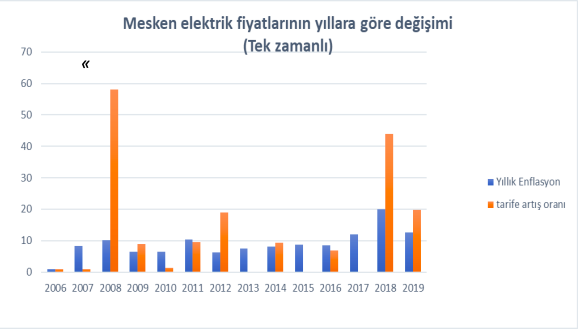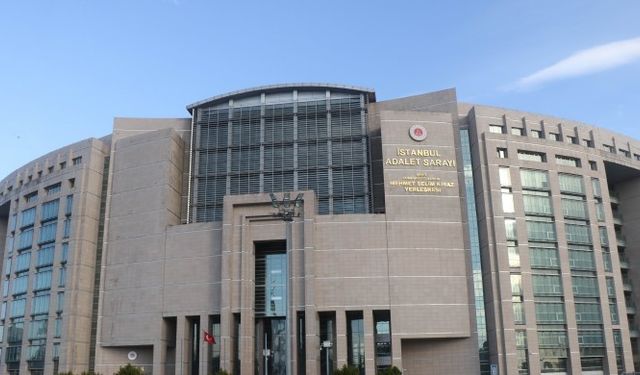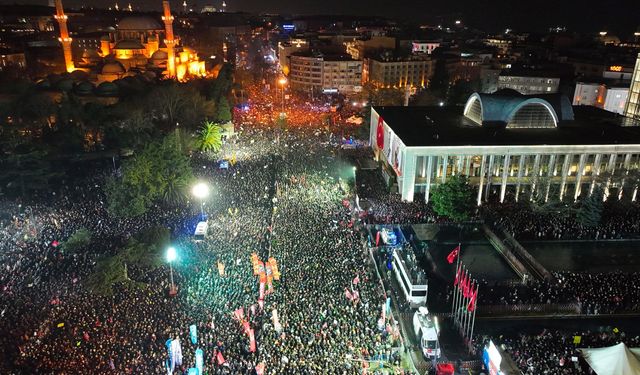Written by: YAĞIZ ALP TEKİN
Translation: Sebla Küçük
Robertson Davies once said “At the back of the Daylight Saving scheme, I detect the bony, blue-fingered hand of Puritanism eager to push people into bed earlier, and get them up earlier, to make them healthy, wealthy and wise in spite of themselves.” It has been six years since Turkish government decided to make the Daylight Saving Time (DST) permanent claiming people would thus enjoy the benefits of sunlight more.
The decision as well as its implementation stirred a public debate. The change was initially introduced by a Cabinet decision, which said “The permanent DST scheme, which was first introduced on March 27, 2016 at 3:00 am to make better use of daylight, will be applied year-round.” Opponents filed a lawsuit against Ministry of Energy to revoke the decision, and the Council of State ordered a stay of execution of the Cabinet decision in September 2017, citing “excess of power.” However, the government insisted on keeping the scheme, and a Presidential Decree was published to bypass the court ruling. On October 27, another Cabinet decision was published in the Official Gazette which extended DST for one year, until October 28, 2018. One month after this decision, the Cabinet was granted powers to make clock changes not exceeding one hour. One year later, DST became the permanent time zone of Turkey according to a decision published in the Official Gazette.
NO SIGNIFICANT SAVINGS
Turkish government ambitiously defends the adoption of DST as a way of promoting energy conservation. The move was based on a white paper published by Istanbul Technical University (ITU) in 2016, which allegedly claims DST would allow 3% to 9% savings in annual energy consumption. A recent statement by Energy Minister Fatih Sönmez also suggested that Turkey saved 6 billion kilowatts since year-round fixed time was introduced in 2016. However, a quick calculation reveals that the saving ratio in total energy consumption in the last six years is only 0.05 percent, which is far below 8.58 percent that was estimated by researchers at ITU in 2016.
NO TRANSPARENCY OF DATA
Meanwhile, civil society organizations, which were not allowed access to the ITU report or the metrics used for the report, have a different idea about the savings achieved, the psychological impact of the scheme and the underlying motivations for the year-round summer time decision. The authors of a 2016 report published by the Chamber of Electrical Engineers criticized the lack of transparency of data and emphasized that similar attempts in other countries ended up with failure to bring significant savings in energy consumption.
“IT DOES NOT PUSH ENERGY CONSUMPTION UP OR DOWN”
The best source that can help solve the uncertainty and chaos is the “Daylight Saving Time Policy and Energy Consumption” paper written by five researchers, which was published in several well-respected journals. The paper discusses the impact of permanent DST on the basis of energy savings data for the years from 2012 to 2020. The authors refrain from jumping to conclusions, as the calculation of savings may be affected by multiple factors, but they demonstrate that the permanent summer time does not push energy consumption up or down according to the data on energy use during said period.
ITU REPORT HIDDEN FROM THE PUBLIC
The main reason for confusion and concerns about the permanent DST is the hidden ITU report which was used to justify the decision. The only two sources about the report are the abstract published by ITU and a live broadcast session on Haberturk TV station hosting Ahmet Duran Şahin, the research coordinator, and Mehmet Karaca, rector of ITU. The abstract and the information given by two academics claim that the research was conducted in 2 years and one billion data points were processed by a team of 11 scholars, including psychologists and engineers, and that the results prove positive outcomes of permanent DST scheme. However, the full version of the ITU report is not accessible – it is not even listed in ITU’s library because “it is an exclusive report written for the ministry.” Some of the studies which were listed in the sources section of the report can be accessed via the collected papers booklet published by the “10th International Clean Energies Symposium.”
DOWNING’S US REPORT REVEALS EFFORTS BY LOBBYISTS
Why does the government insist on keeping the year-round summer time although achieved savings can barely reach 0.05% according to official figures? In the case of the US, it has been proven that specific industries are lobbying in favour of adopting permanent DST. A study by Michael Downing from Tufts University demonstrates political initiatives launched by the Chamber of Commerce and the golf lobby are actively engaged. It is also reported that having almost one hour of additional daylight encourages people to go back home at later hours of the day and spend more money. Downings’ research argues that the golf industry can increase revenues by $400m via the DST program, and reminds that golf companies lobbied for the program in 1986.
TURKEY’S LEADING ENERGY COMPANIES INFLUENCING THE DECISION
It is widely known that Turkey, in parallel to the global neoliberal trends, has embarked on a radical venture to privatize the energy industry. As a first step, in 1984, private companies were allowed to offer electricity services with the “Law on Authorization of Organizations Other Than Turkish Electricity Institution for Power Generation, Transmission, Distribution and Trade.” In 2001, the Law no. 4628 on Electricity Market was adopted, and the Electricity Market Regulation Institution and Board was created to “build an electricity market that functions competitively in accordance with the provisions of relevant legislation and to ensure independent regulation and oversight of the market.” By 2010, all relevant tenders were concluded and electricity distribution zones were handed over to private companies, most of which were owned by Sabancı, Limak, Kolin, Cengiz, and Alarko Akso.
 elektrik 1“Devastating outcomes of privatization in energy sector” Oğuz Türkyılmaz- Heinrich Böll Stiftung
elektrik 1“Devastating outcomes of privatization in energy sector” Oğuz Türkyılmaz- Heinrich Böll Stiftung
(Privatization/Marketization in Electric Energy Sector and Outcomes, M. Nilgün ERCAN-tables on the website of Energy Market Regulatory Authority and anticipated inflation rates for end of 2019 were used)
ELECTRICITY PRICE HIKES SEND CONSUMERS REELING
Electricity prices in Turkey have been following an upward trend throughout the years as a result of privatization. In early 2022, the electricity prices went up once again by varying rates from 52% to 132%, which created major frustration among consumers.
Corporate subscribers were also hit hard by the price hikes. According to Turkey’s Union of Chambers and Commodity Exchanges (TOBB), energy companies’ total debt has gone over $50bn. The energy sector is in the fourth place among the sectors with the largest credit debt. Olgun Sakarya, member of the board at Chamber of Electrical Engineers (EMO), says the privatization process essentially played into the hands of power generation and distribution companies: “As you may remember, a columnist was talking about this on a morning show. Later, an industrialist (who also owns a power generation company) called him saying ‘Don’t bring this up every now and then. We were bankrupt and we survived. We are trying the do some business in foreign currency. We launched power plants via outsourcing. At least now there is some increase in consumption, which is a relief for us.’”
PERMANENT SUMMER TIME SCHEME FAVOURS POWER DISTRIBUTION COMPANIES
The report published by EMO also suggests that the year-round DST program helped boost the revenues of ailing electricity companies: “Permanent summer time favours power distribution companies,” the report argues. A review of independent studies in the past and the statistics held by Ministry of Energy on power conservation demonstrates that permanent DST does not offer any significant benefits. If this is true, the social repercussions of the program would be even more important, as many students and workers who are forced to wake up before sunrise suffer from mental health issues. The discussions on social media demonstrate that workers are not happy about starting off their days in the dark.
* This article has been prepared in the scope of the “New Generation of Investigative Journalism Training Project” which is implemented by Media Research Association in cooperation with ICFJ (International Centre for Journalists).

 elektrik 2
elektrik 2










